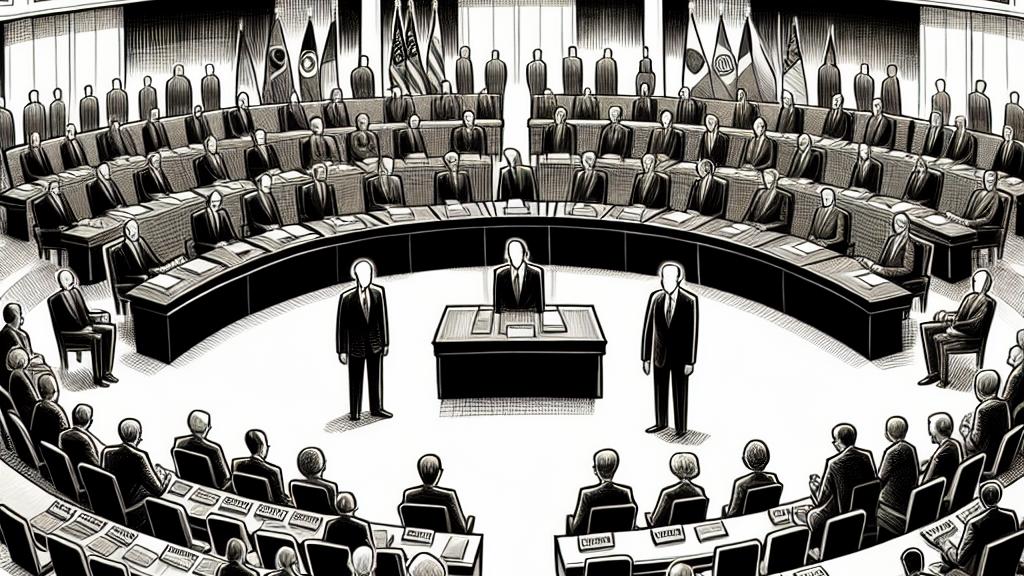Iran's New Cabinet: A Step Forward or a Challenge Ahead?
Overview
- Iran's President Masoud Pezeshkian introduces a 19-member cabinet aiming for reform and gender inclusion.
- Highlights include the appointment of experienced diplomats and the first female minister since 1979.
- The administration must navigate severe economic sanctions and the influence of the Supreme Leader.

Introduction of a Diverse Cabinet
On August 11, 2024, President Masoud Pezeshkian presented a new 19-member cabinet to the Iranian parliament in Tehran, signaling a vital shift in the country's political landscape. Among the notable appointments, Abbas Araghchi, a seasoned diplomat with a rich background in nuclear negotiations, takes the helm as Foreign Minister. This choice is particularly significant as it suggests a move toward diplomacy and a potential reopening of channels with Western powers, especially in light of complex issues surrounding Iran's nuclear program and the legacy of the U.S. withdrawal from the 2015 nuclear agreement.
Breaking Gender Barriers in Government
An important aspect of this cabinet is the historic appointment of Farzaneh Sadegh as Minister of Roads and Urban Development, making her only the second woman to hold a ministerial position since the Islamic Republic was established in 1979. This groundbreaking selection highlights a small yet meaningful step towards gender equity in a government where women have traditionally been underrepresented. Sadegh's presence may symbolize a broader acceptance of women's roles in leadership, especially amid growing advocacy for women's rights within the country. Nonetheless, the struggle for gender equality persists, as many barriers remain in place that limit women's opportunities and influence in both politics and society.
Facing Diplomatic and Economic Challenges
As President Pezeshkian's cabinet prepares to take office, it must contend with several daunting challenges, particularly the economic sanctions that have hampered Iran's economy for years. Although Pezeshkian has a reformist agenda, the extent of his power is curtailed by Supreme Leader Ayatollah Khamenei, whose authority significantly impacts state governance. The parliament will scrutinize the qualifications of the new cabinet members, with a focus on their proposed strategies for revitalizing the economy and fostering diplomatic relations. Successfully addressing these issues will be critical to improving the quality of life for ordinary Iranians, who have suffered under economic strain. The cabinet's performance may ultimately dictate the potential for genuine reform and Iran's future trajectory in a complex geopolitical landscape.

Loading...